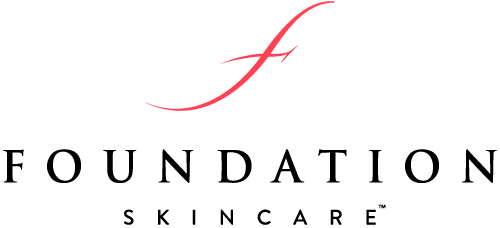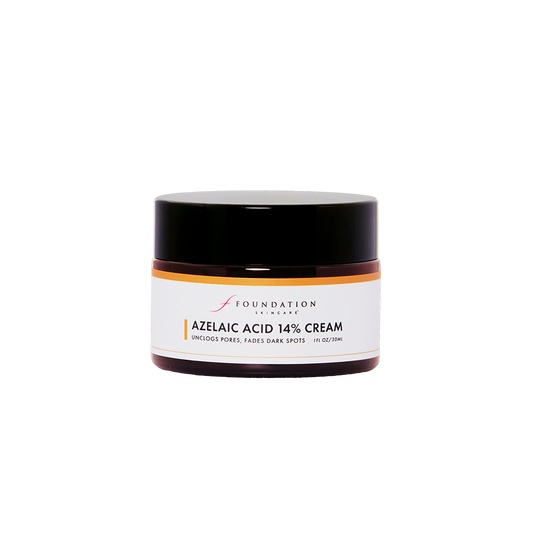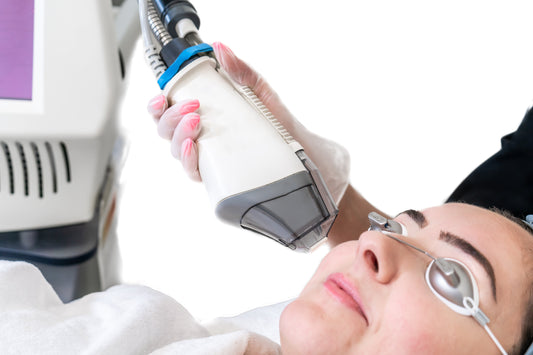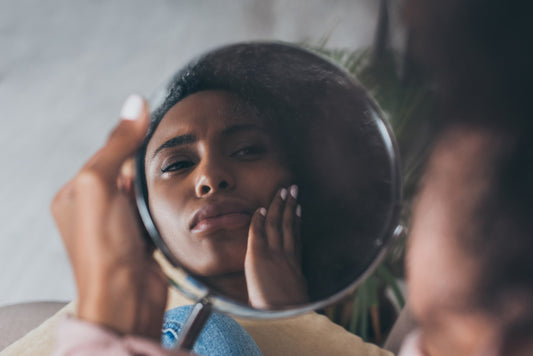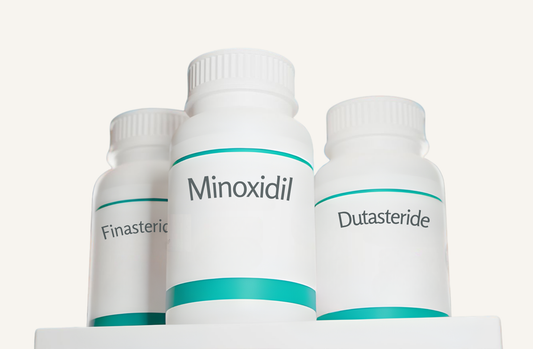There’s a reason why Dr. Pimple Popper has more than 16 million followers on TikTok as of 2024 and over 8 million subscribers on YouTube–popping pimples can be extremely satisfying, even when you’re watching someone else do it.
But before you head to the mirror and start poking at your face, it’s important to remember that Dr. Pimple Popper, aka Dr. Sandra Lee, is a board-certified dermatologist, and she knows how to safely pop pimples without spreading bacteria or scarring skin.
We’ve asked our own dermatologist, Dr. Anthony Nuara, MD PhD FAAD, what he thinks about this tempting habit and whether or not it’s ever safe to pop pimples at home.
The Science Behind Pimples
Every pore on the surface of your body leads to a follicle, which contains a hair and a sebaceous (oil) gland. These glands secrete an oily substance called sebum that keeps your skin and hair hydrated. When the pore becomes clogged, inflammation ensues, leading to a pimple. This clogging can be caused by excess oil, an abnormal formation of keratin, or increased bacteria on the skin.1
Though pimples are often used interchangeably with acne, they are not the same thing. Acne is an inflammatory skin condition. Pimples, or comedones, are a mere symptom of this condition.
Pimples can appear as open comedones (blackheads) or closed comedones (whiteheads). While pimples can occur anywhere, they are most common on your face, chest, shoulders, and upper back.
Pros & Cons of Popping Pimples
When a pimple becomes large and raised with a whitehead on top, you may be tempted to give it a squeeze with your fingernails. We generally advise against this. Fingernails are sharp and covered in bacteria. The inflamed skin is also easy to tear and scar.
There are certainly more cons than pros when it comes to popping pimples. Here are a few.
Cons of pimple popping:
- Spread of bacteria
- Permanent scarring
- Delay of your natural healing process
- More inflammation
- Regret
Are there any pros of pimple popping?
- Immediate satisfaction if you are successful
Expert Dermatologist Advice
If you have a pimple you’re about to pop, try your best to resist. Most pimples heal on their own without any intervention, so if you can wait it out, this is always the wisest choice.
Secondly, ask yourself if the pimple is even ready to pop. If it lies deep under the surface of your skin and has no head, leave it alone. Trying to pop it will likely push the contents even deeper and increase inflammation. You also risk spreading bacteria throughout the inner layers of your skin, which can make the healing process take even longer.
The real key to reducing acne isn’t dealing with current comedones, but preventing future ones. The following Foundation Skincare products are recommended for acne-prone skin:
- Night Renewal Cream: Retinoids, like the granactive in this product keeps your pores clean, which prevents comedone formation altogether. The product also contains peptide growth factors to increase collagen and elastin, which can speed up acne healing.
- Niacinamide Lotion 10%: Niacinamide helps to prevent the inflammation caused by acne while balancing sebum production, making it a crucial component to any acne-fighting regimen. It also helps fade hyperpigmentation caused by leftover acne scars.
- Azelaic Acid 14% Cream: Like niacinamide, azelaic acid also prevents the inflammation that causes whiteheads to form while killing bacteria on the skin and reducing the buildup of dead skin cells that lead to clogged pores. At the same time, azelaic acid defends against hormonal acne by disrupting the link between increased levels of testosterone and an increase in oil production on your skin.2
- Hyaluronic Acid Lotion: As a powerful humectant, hyaluronic acid pulls moisture into the skin and seals it in. Not only does this hydrate on the deepest level for dewy-looking skin, but it also accelerates your skin’s natural healing process, which is helpful for current breakouts as well as acne scars.
All of the products in the Foundation Skincare collection can be safely layered together without causing irritation. Be sure to apply thinnest to thickest for the most efficiency.
Azelaic Acid 14% Cream
• Brightens skin, fades brown spots
• Unclogs pores, improves texture
Safe Pimple Popping Techniques
While we generally discourage squeezing pimples, there are popping techniques you should use if you cannot resist temptation. I advise my patients to use two cotton swabs to gently squeeze and remove the purulent contents. Never force a pimple to pop and stop at the sight of blood as this indicates the pimple is too deep to be removed.
Alternatives to Popping Pimples
The best alternative to popping pimples is to wait it out. If you need to do something, you can try the following:
- Apply a patch or solution containing salicylic acid.
- Hold a warm (not hot) compress to the pimple for several minutes to loosen up the pus.
- Try to limit your time in front of the mirror to resist the temptation of popping.
- Practice a preventative skincare routine with proven acne-fighting ingredients.
Common FAQs
Still have some pimple popping questions?
Is it good for a dermatologist to pop pimples?
A board-certified dermatologist or well-trained estheticians can safely “pop” pimples without much risk of scarring. They can also inject medication like cortisone directly into large pimples to calm them down.
Should I pop a pimple if it’s white?
You should always resist popping a pimple, but if it’s white, it is safer to pop than a pimple without a head. If alternative methods like patches or warm compresses don’t work, use the technique suggested above with cotton swabs.
How do pimples heal if you don’t pop them?
Pimples typically heal with minimal scarring if you leave them be. It should take around three to seven days. Deeper pimples or cysts may take a few weeks to clear up.
Does popping pimples cause more pimples?
Popping pimples does not cause more pimples, but it can exacerbate a current breakout and prolong the healing process.
Find out more about how to treat and prevent acne in the FS Journal, such as:
- Top 5 Skincare Products You Need for Acne Breakouts & Scarring
- Cheek Acne 101: Root Causes & ways to Treat It At Home
- How Can I Reduce & Prevent Hormonal Acne Breakouts?
Explore the full Foundation Skincare collection here.
References:
-
https://my.clevelandclinic.org/health/diseases/22468-pimples
-
https://pubmed.ncbi.nlm.nih.gov/2534550/
